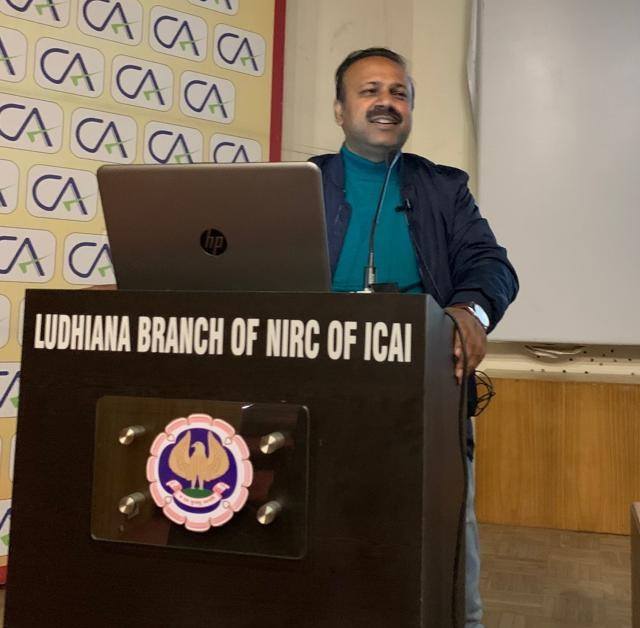Introduction
Although Direct Tax Vivad Se Vishwas Scheme has been launched to end litigation but there are number of grey areas which require clarification or can become source of future litigation. Some of these areas are being highlighted as below:
1. Vivad Se Vishwas Scheme, except section 3 of the Scheme, does not override Income Tax Act, but FAQ 5 and FAQ 31 prohibit the payment of interest u/s 244A, which is outside the purview of the scope of the scheme.
2. FAQ 7 and FAQ 16 requires declarant to make declaration contrary to actual facts. Like in set aside cases, where matter is with AO, but assessee has to declare that appeal is pending with CITA. Then, where assessee does not file any objection before DRP and is awaiting final order, assessee has to write in declration that time for filing objections before DRP has not expired.
3. Where enhancement notice is issued by CIT A u/s 251, it is not clarified whether assessee has to settle both enhancement and original issue before CITA or can settle either of them.
4. FAQ 7 permits filing of declaration on concluded issues also, but whether assessee shall be allowed refund of amount paid in excess of disputed tax in such cases has not been clarified.
5. As per FAQ 30, credit to be allowed to deductee when deductor settles issue under the scheme and not in the year concerned. Hence the year of reflecting income by the deductee and TDS claim corresponding to the same shall not only be in different financial years but also not supported by entry in 26AS inviting further litigation for the deductee.
6. Interest to be paid by deductee till the date of settlement on credit obtained due to TDS dispute settled by deductor. [FAQ 30] .This is against the spirit of section 205 and clarification issued by CBDT dated 01-06-2015 which says that no recovery can be made from deductee for tax deducted by deductor
7. Applications before Settlement Commission are not covered by VSVT, where in assessee has to pay interest along tax. However under VSVT assessee has to pay 125%/135% of disputed tax, where in if 25%/35% of disputed tax is more than Interest + Penalty, excess of 25% over Interest + Penalty is also ignored, which means, amount payable may be even lesser than 125%/135%. This may be discriminatory for Assesses opting for Settlement Commission and may have to under go test of constitutional principle of equality before law or equal protection of laws
8. As per FAQ 5 and 26, credit of prepaid tax or already paid tax is available under VSVT, but it is not clarified that whether credit of prepaid taxes available for refund for past assessment years or subsequent assessment years other than assessment years under dispute shall be available ?
9. It has not been clarified whether disputed tax can be adjusted against amount lying in public deposit account in case of search and seizure.
10. It is not clarified as to whether where appeal was pending before appellate forum and the matter has been heard but order has not been passed can be covered by the scheme ?
11. Whether cases where appeal was pending before appellate forum on 31st Jan 2020 and the matter has been decided after 31st Jan 2020 and period for further appeal has not expired on the date of declaration shall also be eligible to be covered under the scheme?
12. As per FAQ 23, If the due date of filing appeal is after 31.1.2020 and the appeal has not been filed, such cases shall be eligible for the VSVT, But FAQ 23 does not clarify that whether if appeal’s time has expired on the date of declaration whether still the scheme can be availed ?
13. Where return has not been filed in time, whether option to carry forward the reduced loss shall still be available under the scheme ?
14. How to compute tax related to loss to be included in disputed tax, especially when loss pertains to different heads and sources for which different rates of tax are applicable ?
15. Where departmental appeal ought to have been withdrawn due to monetary tax effect but is not withdrawn, whether the scheme shall apply to such cases ?
16. Where order is passed by designated authority after 16th March 2020 such that 15 days u/s 5(2) expire after 31st March and thus amount payable u/s 3 is payable after 31st March 2020, whether the assessee is entitled to benefit of reduced amount if the amount though payable after 31st March 2020 is actually paid before 31st March 2020.
17. Where the order passed by ITAT is recalled after 31st January 2020 against the same appeal number, whether the benefit of scheme can be availed ?
18. Whether disputed penalties u/s 271A, 271B or 271D which relate respectively to books of accounts, audit and contravention of S. 269SS and are not relatable to disputed income can be covered by the scheme.
19. Section 5 of the Scheme does not provide for any rectification by Designated Authority but FAQ 46 permits such rectification. Where such rectification is prejudicial to the assessee, whether it shall have effect ?
Conclusion:
The above matters must be clarified at the earliest so that more and more people can avail the benefit of the scheme





